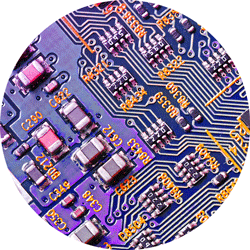John is a Consultant, Mediator & Arbitrator in the Dispute Resolution team where he handles a wide range of complex and high-value commercial litigation and international arbitration, often involving multi-jurisdictional issues.
He is a Fellow of the Chartered Institute of Arbitrators (International Arbitration), is also an experienced mediator accredited in the UK by the Civil Mediation Council and is a member of, the IBA, the LCIA, ICC, AIAI, SIAC, Abu Dhabi Arbitration Centre and the German Arbitration Institute (DIS).
John’s practice includes:
International arbitrations and domestic arbitrations
English High Court and County Court litigation
cross-border disputes and issues of proper law, jurisdiction and forum
injunctions and freezing orders
mediation, as a mediator and representing clients at mediations
commercial/contractual disputes
construction disputes
property and landlord and tenant litigation
shareholders’ and boardroom disputes
guarantee disputes
intellectual property litigation and theft of data claims
John is an experienced arbitrator and his arbitration experience spans more than 25 years and he has extensive experience representing clients in both international arbitration and domestic arbitration, institutional and ad hoc. Some of John’s most notable recent cases have involved:
an arbitration between two middle eastern parties in respect of a contract for the distribution of high value medical equipment supplied from Japan to Saudi Arabia
a dispute in respect of the quality of steel supplied by a Korean steel producer to a Polish roofing manufacturer
a construction dispute in relation to a redevelopment of a London property
a dispute between a Chilean manufacturer of green coke and an importer from Italy
John has considerable experience as a mediator and believes that there are very few disputes which are not capable of resolution by the use of mediation. He has proved to be very effective at bringing the parties to the point where they feel they can reach accord.
John accepts appointments as arbitrator and as a mediator.
With more than 30 years' of experience and expertise, John is a very effective dispute resolution lawyer. He is a tenacious litigator with the ability to identify key issues early enabling him to resolve issues as quickly and cost effectively as the circumstances allow.
Contact details
Email: john.abbott@laytons.com
Tel: +44 (0)20 7842 8000
DDI: +44 (0)20 7842 8063
LinkedIn
Qualifications
Qualified as a Solicitor in 1984
Fellow of the Chartered Institute of Arbitrators (FCIArb)
Accredited Mediator
Fellow of the Asian Institute for ADR
Recommendations
“offers practical solutions“ — Legal 500 2019
Expertise
News & Insights
The Arbitration Act 2025 introduced some significant revisions to the Arbitration Act 1996. The most significant revisions were explained in John Abbott’s article dated 26 February 2025. But what was not included in the Arbitration Act?
The Arbitration Act 2025 received Royal Assent on 24 February 2025 and will inform, in many respects, how arbitrations seated in England & Wales are conducted. The UK Government says that the new provisions introduced by the 2025 Act will keep the UK at the forefront as an arbitration centre and should provide a boost to the UK economy generally.
One of the most complex things to advise on as counsel or determine as the tribunal, is whether a particular dispute may be determined by arbitration.
For the past 27 years the Arbitration Act 1996 has been the pillar upon which England and Wales has established itself as a highly respected and trusted jurisdiction under which to conduct International Arbitrations.
For almost 10 years there has been debate whether parties to litigation could be compelled to engage in mediation or other non-court dispute resolution process.
As we head into the hustle and bustle of December, we’re taking a moment to reflect on our firm’s activities and achievements throughout November. It’s been a busy month of knowledge sharing, visits from abroad, and glamorous events!
Join our Arbitration Lawyer, John Abbott, for an expert insight into International Arbitration, with the International Practice Group.
As we reach the end of October, it’s time to reflect on the significant achievements and contributions of Laytons ETL over the last month. It’s been a busy month filled with international conferences, knowledge sharing and team socials!
In line with every contracting state to the New York Convention 1958, the courts of England & Wales will stay proceedings brought in the courts of England & Wales and refer the parties to arbitration where an agreement to arbitrate exists unless the court finds that the agreement to arbitrate is null and void.
As we approach the end of September, it's time to reflect on the notable achievements and contributions of Layton ETL over the past month. From hikes, to promotions and new starters, it’s been an incredible month!
With six specialist lawyers providing expert advice, we offer a highly experienced, partner-led, cost-effective service. We aim to resolve disputes quickly and pragmatically, to achieve the best outcome for all our clients.
Our Consultants examine these new requirements and offer insights into effective ESG strategies.
It is often said that one of the main reasons business-people choose to use arbitration to resolve their issues instead of litigation is a desire to keep their disputes away from the public gaze. National courts are public forums and litigation brought in court is open to public scrutiny.
Successful challenges to arbitral awards are rare. The case of K -v- A [2019] EWHC 1118 (Comm) is one of those highly rare cases where a Gafta Award was subject to a successful challenge.
Arbitration has many advantages over litigation, but one of the fundamental tenets behind arbitration, is the provision of a relatively inexpensive and quick means of resolving commercial and trade disputes.
One of the primary advantages of arbitration is the relative ease of enforcement of arbitral awards in states which are signatories to the New York Convention on the Recognition and Enforcement of Foreign Arbitral Awards 1958.
Finality is one of the key selling points of arbitration. Consequently, challenging an award before the English court is far from easy. There are obstacles in the path of any challenge or appeal and the available grounds are limited and closely scrutinised.
When a dispute arises which must, under the terms of an arbitration agreement, be referred to arbitration, the need might arise for urgent interim measures to protect a party’s position pending the outcome of the arbitration.
When a dispute arises which must, under the terms of an arbitration agreement, be referred to arbitration, the first step will be for the parties to appoint the tribunal. Finding the right arbitrators and ensuring that the relevant contractual, statutory or institutional requirements are complied with is vital.
Until a notice of commencement has been served, the arbitration process will not have commenced. It is not possible to start arbitration without first giving a Notice of Arbitration to all of the parties to the arbitration.































